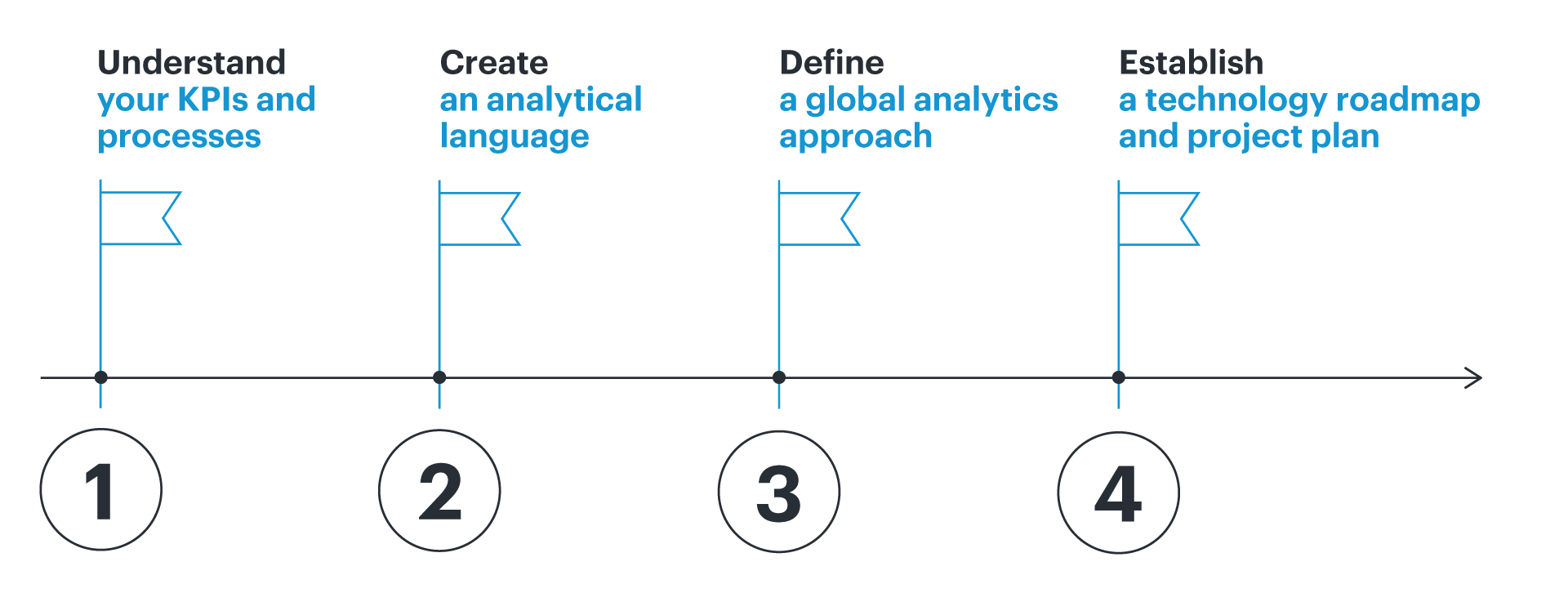Published on July 16, 2019 – Planning & Analytics
Challenges in implementing KPI systems
Once KPIs for an area within company have been defined, the next question will be: How to implement them. Many people would think of a technical implementation first, but the change management effort outside the technical world is usually underestimated.
The first thing that needs to be achieved is a buy-in from everyone using this KPI. No one will be happy to be measured against something he either doesn’t understand or considers to be wrong. If people don’t buy into a KPI, the discussion will never focus on the measures to be taken to improve the situation but all the reasons why the KPI may be wrong or inappropriate in the one or another sense.
Proving the concept for a KPI against the real-world data, processes and situations is the other critical point when implementing KPIs. Some concepts sound good on paper and with test data but fail in the real world.
Implementation of a KPI is not a onetime project. The concept of the KPI, the values used for measurement as well as the strategy and objectives it relates to need to be verified on a regular basis. Otherwise, decisions could be taken on a concept that only shows part of the reality.
The Westernacher approach
In order to ensure early buy-in for KPIs, we recommend using the following 4-step approach when running a business analytics project:
How to turn today’s business data complexity
to your competitive advantage.
4 steps
In the first step, processes and existing KPIs are analyzed. A common analytical language is established to ensure everyone knows what is being measured and clear names exist for KPIs and data being used. Both steps ensure that all involved people speak the same language and talk about the same existing processes. From here, KPIs can be defined as part of the global analytics approach, where measurement points and blind spots are being put on a map to identify urgent business needs and priorities. Afterwards, the technical tools are analyzed, and an implementation roadmap is being created.
In the whole process, all relevant stakeholders are being involved in different workshops. Only if they agree to start implementation projects for identified needs, the next steps will be taken.
For those implementation projects, we highly recommend using agile project methods.
Agile methods
Agile methods become more and more popular in project delivery. These are based on three main principles:
- A project should be delivered in an iterative manner, delivering business value as early as possible.
- The people delivering the project should form a project team, which works very close together across silos. So, business and IT deliver the project together from the first day of the project to the last.
- Scope and priorities can change during the project. Therefore, the final deliverable is not set in stone. We should only deliver anything that adds real value to a business. Everything that does not immediately add business value but may add it at a later stage is being delivered with a lower priority and may be pushed to a separate project or later phase.
The agile project methodologies can help implementing KPIs in multiple ways:
- The early involvement of business and IT and the product owner help to foster an early buy-in for KPIs.
- Even though good KPIs should give a 360-degree view on the problem, starting in small steps from one side and then iteratively improving it is very valuable. Concepts are immediately proven with real-world data and tested for first decisions. Business value is already generated after the first part of a KPI has been used.
- When following a failed fast approach, flaws in the concept can be found very early and can be adjusted by the project team.
Summary
The main success factors for implementing KPIs are:
- People involvement
- A common understanding of the KPI and the related processes
- An early diagnosis of missalignments and misunderstandings in real world situations
We recommend using our approach and agile project methodologies to do this.
Book your Westernacher Business Analytics Inspiration day today.
Business Analytics with Westernacher.
Book your Inspiration Day
A unique opportunity for your company to gather all relevant leaders and specialists for an inspirational, interactive and hands-on workshop.
PROGRAM (APPROX. 4 HOURS)
- Understand current opportunities to leverage your data
- Lessons Learned in advanced analytics projects
- Demonstration of selected analytic tools
- Definition future high level goals
FURTHER INFORMATION
- Time: We will discuss with you directly to find the most suitable date
- Place: We would be happy to conduct the workshop on your premises
- Price: Free of charge
To get in touch about any questions, please reach out to us and we will be happy to help you get started.
Share this article

